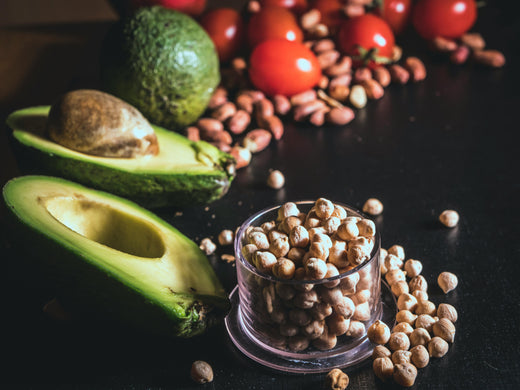
Why fibre is good for your gut health
One of the recent coaching sessions our members were lucky enough to take part in was a chat on gut health with our Dietitian Marni.
Marni chatted about the benefits of fibre and why it is good for our gut.
All the recipes in the Zing Wellbeing meal plans are packed FULL of fibre to support your gut and overall health.
JOIN NOW to try the recipes and also ask Marni a question and participate in our next LIVE session.
Why fibre is good for your gut health
When it comes to maintaining a healthy and balanced gut microbiome, fibre plays a crucial role.
Fibre, a type of carbohydrate found in plant-based foods, is not digested by the body but instead passes through the digestive system, providing a host of health benefits, including but not limited too, food for your gut microbiome, softening stools, absorbing water into the bowel to reduce constipation.
Types of Fibre
Fibre is generally categorised into three main types: soluble and insoluble. Each type offers distinct benefits and works differently in the digestive system.

Soluble Fiber
Sources: Oats, barley, nuts, seeds, legumes, and the flesh of fruits and vegetables
How It Works: Soluble fibre dissolves in water to form a gel-like substance. This fibre helps slow down digestion, which can be beneficial for managing blood glucose levels. The gel-like substance also creates a coating on your intestinal tract which inhibits cholesterol & glucose reabsorption. In the gut, soluble fibre acts as a prebiotic, feeding beneficial bacteria and promoting a healthy microbiome.

Insoluble Fiber
Sources: Whole grains, nuts, beans, and the skin of fruits & vegetables
How It Works: Insoluble fibre does not dissolve in water and adds bulk to the stool. This type of fibre helps move material through the digestive system more efficiently, promoting regular bowel movements and preventing constipation.

Resistant Starch
Sources: green bananas, legumes, and cooked-and-cooled rice, pasta and potatoes.
How It Works: Resistant starch is a type of fibre that resists digestion in the small intestine and ferments in the large intestine. During fermentation, it produces short-chain fatty acids that provide various health benefits like increased immune support and gut barrier support.
How to Incorporate More Fibre into Your Diet
- Start Slow: Gradually increase your fibre intake to avoid constipation.
- Eat a Variety of Foods: Include a mix of soluble and insoluble fibre from different sources.
- Stay Hydrated: Drink plenty of water to help fibre move through your digestive system. We need both fibre and water to support a healthy environment.
Incorporating a variety of fibre types into your diet is essential for maintaining healthy bowel movements and feeding your gut microbiome. Remember to increase your fibre intake gradually and drink plenty of water to help your body adjust. Here's to a healthier, happier gut!
About Marni

Marni Maytom - Accredited Practising Dietitian (APD)
Marni is a registered APD with Dietitian's Australia. Marni has clinical experience with a variety of patients both inpatient & outpatient.
NOTE: The advice shared via our coaches is general advice and is never a replacement for speaking to a health care professional.
Important information about coaches – Zing Wellbeing
Read Zing Wellbeing reviews
Still not sure? Read what hundreds of women are saying about Zing Wellbeing and how it has helped change their life. Read our reviews here.



